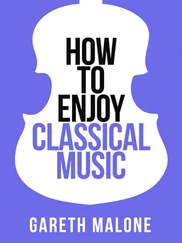STEPHEN FRY - OF CLASSICAL MUSIC
Здесь есть возможность читать онлайн «STEPHEN FRY - OF CLASSICAL MUSIC» весь текст электронной книги совершенно бесплатно (целиком полную версию без сокращений). В некоторых случаях можно слушать аудио, скачать через торрент в формате fb2 и присутствует краткое содержание. Жанр: на английском языке. Описание произведения, (предисловие) а так же отзывы посетителей доступны на портале библиотеки ЛибКат.
- Название:OF CLASSICAL MUSIC
- Автор:
- Жанр:
- Год:неизвестен
- ISBN:нет данных
- Рейтинг книги:5 / 5. Голосов: 1
-
Избранное:Добавить в избранное
- Отзывы:
-
Ваша оценка:
- 100
- 1
- 2
- 3
- 4
- 5
OF CLASSICAL MUSIC: краткое содержание, описание и аннотация
Предлагаем к чтению аннотацию, описание, краткое содержание или предисловие (зависит от того, что написал сам автор книги «OF CLASSICAL MUSIC»). Если вы не нашли необходимую информацию о книге — напишите в комментариях, мы постараемся отыскать её.
OF CLASSICAL MUSIC — читать онлайн бесплатно полную книгу (весь текст) целиком
Ниже представлен текст книги, разбитый по страницам. Система сохранения места последней прочитанной страницы, позволяет с удобством читать онлайн бесплатно книгу «OF CLASSICAL MUSIC», без необходимости каждый раз заново искать на чём Вы остановились. Поставьте закладку, и сможете в любой момент перейти на страницу, на которой закончили чтение.
Интервал:
Закладка:
What else from the year of revolution? War, of course, raged on, with the US having entered the fray. As the English royals renounce their German names, the battles of Passchendaele and Cambrai take their toll, and it must have become very hard to link this Cambrai with the Cambrai that was once the centre of the musical universe. Away from the sword, the pen of Siegfried Sassoon is busy adding the final flourish to 'The Old Huntsman' and Jung has completed his Psychology of the Unconscious. In Paris, Picasso has gone all surreal when asked to come up with the set designs for the Erik Satie-Jean Cocteau-That Man Diaghilev ballet, Parade. To be fair, Picasso is probably only mirroring Satie's somewhat individual score. If you are mainly used to the calming Satie tones of a Gymnopedie or a Gnossienne, then a healthy blast of Parade would certainly show you a different if related side to this most idiosyncratic of composers. The score calls for some very odd instruments indeed, namely a gun, a typewriter and, of course, a police siren.fi So nothing out of the ordinary there, then. Actually, while we're on the subject of Satie, can I call time out, please.
SATIE TIME OUT
T
his won't take a minute. I just want to say, while we're on the subject of Loopy Erik, I think it's fair to say that Satie was keeping up his reputation for coming up with the best tides EVER for pieces of music. The man who would have given his publishers sleepless nights because of his tendency to write his scores in red ink without bar lines was also the man who came up with some names for classical music pieces that just haven't been bettered. I've mentioned Limp Preludes for a Dog, for example, but there's also The Bureaucratic Sonata and, my personal favourite, Trois Pieces in the Shape of a Pear. Delicious. Just what the doctor ordered. Right, time in again.
1917 was an up and down sort of year for art. The Old Guard were doing what the Old Guard did best, namely dying. Rodin, Degas, both of them gone in 1917. (Special mention to Hilaire Germain Edgar Degas, one of the best names in French art. Lovely.) At the same time, though, the new lot were really enjoying being a part of one of the golden periods in art: Modigliani's Crouching Female Nude s» In fact, it is largely unknown that Mozart's Musical Joke calls for a police siren in the score, although it is always played at a section when the horns are playing too loud for it to be heard. As I say, this is largely unknown, because it is largely untrue. was from 1917. So was Pierre Bonnard's Nude at the Fireplace as well as the lithographs by Georg Grosz, The Face of the Ruling Classes. Good year, huh?
Puccini came up with a little corker in 1918, an aria called 'O mio babbino caro'. Gorgeous stuff. To be fair, it is more or less the highlight of three one-act operas called The Triptych, or II Trittico - just to prove that the Italians can make anything sound fantastic. 'O mio babbino caro' - or 'O my beloved Daddy', to give it its proper translation - is from the third of the operas, Gianni Schicchi, with the other two, The Cloak and Sister Angelica, barely ever getting a look in. In March 1918, the world lost Debussy, too. Sadly, I imagine it had more pressing things on its mind, at the time, because the West was still firmly in the grip of world war. But, following the second battle of Marne, the German retreat to their own territory, the conference of Versailles and the declaration of a German republic, the world witnesses the Armistice of November 11th.
IF YOU WANT TO GET A THREE-CORNERED HEAD…
1919 and here comes that man again. No, not him. Our man in the tight pants, Diaghilev. Turning out to be quite an important bloke, this Diaghilev - constantly coming up with requests for his Ballet Russe that resulted in some of the best work being drawn out of his coterie of composer friends. He's just commissioned the sound of 1919, the music for a ballet called The Three-Cornered Hat, from Manuel de Falla - or to give it its far superior authentic title, El Sombrero de tres picos. FANTASTIC! De Falla had been one of the troupe of artisans all living in Paris at this fantastic time, but had now gone back to his native Spain, where he'd produced what were to be the three big works of his life: another ballet, Love the Magician ('Oh, darling, love the magician! Mwah, mwah!'), the exotic piano and orchestra piece Nights in the Gardens of Spain, and, of course, this year's Hatty Town Suite.
Haven't got time to dwell on him, though. I have to keep moving because it's a really big year. Teddy Roosevelt has died - probably a blessing, really, because he had one eye missing, his fur was worn and bis stuffing was coming out. It's the year of the League of Nations in Paris, of the Hapsburgs in exile, and of the Red Army in the Crimea. Jan Smuts has been made PM in South Africa and Lady Astor has been made MP in Britain. All fairly crucial stuff, in one way or another. The Bauhaus, too, has been founded and built - in that order - by Walter Gropius. Kandinksy, Picasso and??? are producing simply stunning, world-class stuff, and, instead of a novel, tbis year, Thomas Hardy has opted to publish his Collected Poems. Oh, and in the US, Mr AD Juillard has left a cool $20 million to found a new music school which would not only eventually bear his name but also give rise to the rather unfortunate TV series, Fame, in the mid-80s. Good on him. So, on to 1920, and… do I hear La Valsei
THE DARK SIDE OF THE TUNE
T
he answer is probably no, you don't hear La Valse, unless, of course, you're one of those… 'special people'. Hmm? No, of course you're not. Anyway, La Valse, by Ravel. Again, a commission from that man Diaghilev. SEE! Clever little sausage, our Serge. Still getting the best out of people. In this instance, he got Ravel while it was still good to get Ravel. You see, Maurice Ravel had been, for much of the previous four years, an ambulance driver on the Front. Verdun, mainly. I know - it seems odd to think of someone like Ravel, out there on the Front, ferrying the sick and wounded. The war had really knocked the stuffing out of him, as you might imagine it would do to a seven-stone, sensitive soul like him. The conflict is said to have virtually broken him, and he ended up retiring, shattered both physically and emotionally, and suffering from insomnia and bad nerves. Afterwards, he went into more or less complete seclusion in his beloved home, thirty miles outside Paris. He did continue to produce great music - La Valse being a case in point -but, with his nervous problems and his awful memories, the inspiration came far less often. It also can't have helped that Diaghilev didn't like the final score to La Valse, either, and his refusal to use it must have come as a bit of a blow to a man just two years out of battle. No such problems seemed to be afflicting Theodore Gustavus von I lolst, who, by now - 1920 - had changed his name to simply Gustav Hoist, to lessen suspicions of German sympathies. In 1920, he suddenly found himself with a hit on his hands, when he gave the first performance of the piece he'd been writing during the war, namely The Planets. This mild-mannered, Cheltenham-born teacher would never better this work, and so the wait of six years or so to hear it premiered was well worth it.
Now, bless me, Father, for I'm skipping forty-eight months to get to Gershwin's blue period.
BLUE IS THE COLOUR…
R
hapsody in Blue, I mean, because… well, it's important, isn't it. The first really successful attempt to take the new music, jazz, into the classical concert hall. And there's that word again. Classical. Still sticking as the name for this sort of music despite the fact that it really means the music of the time from 1750 to around 1820. Never mind. If that's the biggest of our worries, then we're doing well. But of course… it isn't. Let me mention some of the other things that are bothering me about music right now, if I may.
Читать дальшеИнтервал:
Закладка:
Похожие книги на «OF CLASSICAL MUSIC»
Представляем Вашему вниманию похожие книги на «OF CLASSICAL MUSIC» списком для выбора. Мы отобрали схожую по названию и смыслу литературу в надежде предоставить читателям больше вариантов отыскать новые, интересные, ещё непрочитанные произведения.
Обсуждение, отзывы о книге «OF CLASSICAL MUSIC» и просто собственные мнения читателей. Оставьте ваши комментарии, напишите, что Вы думаете о произведении, его смысле или главных героях. Укажите что конкретно понравилось, а что нет, и почему Вы так считаете.










